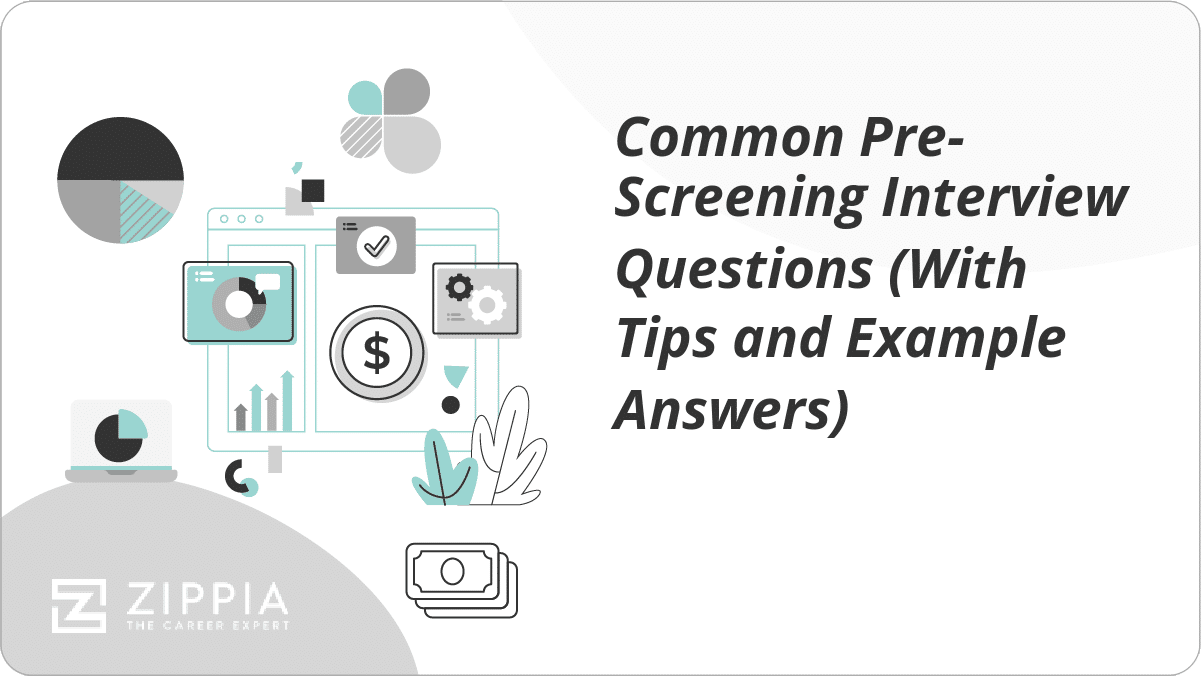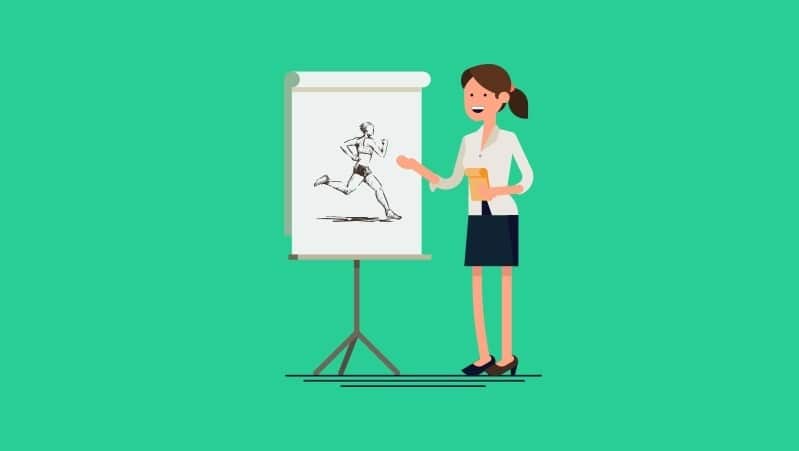- Common Questions
- Interview Questions
- How To Answer Tell Me About Yourself?
- Elevator Pitch
- Where Do You See Yourself In 5 Years?
- What Are Your Career Goals?
- When Can You Start?
- How Do You Define Success?
- Describe Your Work Ethic
- Where Are Your Current Duties?
- What Are Your Learning Goals?
- Intrinsic Vs Extrinsic Motivation
- What Is Your Desired Salary?
- What Makes You Unique?
- Why Are You The Best Person For This Job?
- Reasons For Termination
- What Are Your Work Values
- How To Make A Hard Decision?
- What Are You Most Proud Of?
- Personal Code Of Ethics
- Problem Solving Interview Questions
- Taking Initiative Example
- How Do You Prioritize Your Work
- Explain Gaps In Employment
- Most Rewarding College Experience
- What Is Your Work Style
- Tell Me About A Time When You Made A Mistake On The Job
- Tell Me About Gaps In Employment
- What Are You Passionate About
- What Skills Would You Bring To The Job
- Who Is Your Mentor?
- Tell Me About Gaps In Employment
- How To Answer Tell Me About A Time You Disagreed With Your Boss
- How To Answer Common Screening Questions
Find a Job You Really Want In
Answering pre-screening interview questions is often the first step in the job interview process. Recruiters will schedule a brief meeting where they’ll ask you a few questions designed to tell them if you should move on to the next step in the interview process.
If you’re actively applying for jobs or have a pre-screening interview scheduled, it’s important to familiarize yourself with the types of questions they’ll ask you and practice answering them. In this article, we’ll share some common pre-screening interview questions and answers.
Key Takeaways:
-
Pre-screening employment questions are used to narrow down the candidate pool, so take them seriously.
-
Pre-screening employment questions include topics about work experience, job responsibilities, personal goals, and interest in the position.
-
Don’t be negative in your answers because this can be a red flag for the interviewer.
-
Use the STAR method when asked situational or behavioral questions.

- Why are pre-screening interview questions important?
- Pre-screening interview questions categories to expect
- Example answers for pre-screening interview questions
- How to avoid giving an employer red flags
- Additional tips for answering pre-screening interview questions
- Pre-screening interview questions FAQ
- References
- Sign Up For More Advice and Jobs
Why are pre-screening interview questions important?
Pre-screening interview questions are important because many employers will use them to narrow down the candidate pool. This is because these questions allow them to start pinpointing who might be a better fit for the job over someone else.
They can learn the basics about your work history, skills, career goals, and your industry knowledge, all of which will tell them if you meet the basic criteria for the position. They can also learn if you have the personality type they’re looking for.
Because of this, pre-screening questions are a great way to make a positive first impression. If you can immediately sell yourself as a good fit for the job, you’ll stand a much better chance of continuing to move forward with the hiring process.
Choose From 10+ Customizable Resume templates
Zippia allows you to choose from different easy-to-use resume templates, and provides you with expert advice. Using the templates, you can rest assured that the structure and format of your resume is top notch. Choose a template with the colors, fonts & text sizes that are appropriate for your industry.
Pre-screening interview questions categories to expect
There are many common pre-screening interview questions you could be asked. However, the majority of these questions will all fall under a few shared categories.
We’ve outlined the most common pre-interview question categories you might come across to make preparing a little easier:
-
Work Experience Questions
Typically, most jobs will expect you to have some kind of related job experience before applying. Or, at the least, you should be able to relate your previous work and accomplishments to the type of work you’d be doing at this new company. These kinds of questions will inform the employer of your background and how qualified you are for a position.
Here are some examples of common work experience questions:
-
How would your previous work experience help you succeed in this new role?
-
Can you tell me about a time when you faced a major challenge in your last position? How did you overcome it?
-
Why are you leaving your current position?
-
-
New Job Requirement Questions
Another great way employers gauge how qualified you are for the position is by asking questions about the position you applied for. This will give them some idea about your qualifications, interest, and skills related to the position.
Questions to expect in this category include:
-
Why are you interested in this position?
-
I see you’ve worked in X. Can you tell me how your experience in X makes you a good candidate for this position?
-
Daily requirements for this position include x, y, and z. Can you tell me how you meet these requirements?
-
-
Responsibility Questions
Employers want to ensure that a potential candidate can be responsible for all important aspects of a position. While a lot of these questions might be related to your work experience, they’ll serve the express purpose of letting the employer know if you’re a responsible worker.
Here are some questions related to this topic you may be asked:
-
What were some of your responsibilities at your previous position?
-
Are there specific responsibilities you hope to have with our company?
-
Tell me about a time when someone depended on you.
-
Can you tell me about a time you showed leadership?
-
-
Personal Development Questions
A candidate’s capability for and interest in personal growth is an important part of succeeding in a job. Someone who wants to grow and work toward their professional goals might be more willing to learn new methods and skills, as well as improve their performance.
With that in mind, here are some common personal growth questions to look out for:
-
Can you tell me about your biggest workplace accomplishment?
-
What are your professional goals?
-
How would this position help you pursue your goals?
-
What personal growth did you achieve in your last position?
-
-
Work Style Questions
Do you enjoy working on a team, or do you prefer operating solo? These differences in work style can impact your performance in certain positions, so employers want to know how you tick. That way, they’ll already have a good idea of how well you’d fit into the demands of the role.
Here are some common work style related questions:
-
Do you prefer to work in a team or independently?
-
What role do you usually play in team situations?
-
What makes a successful team?
-
-
Interpersonal Questions
Most jobs require you to communicate with co-workers, customers, or clients in some form, so it’s important to have strong interpersonal skills. With that in mind, employers might ask pre-screening interview questions related to your competence, facilitating interaction and communication.
Here are some examples of these questions:
-
Describe your experience resolving disagreements.
-
How would you go about building relationships in a new workspace?
-
How do you effectively communicate with co-workers or customers?
-
-
Organizational Questions
Staying organized is an important part of succeeding in the workplace. For example, employers might want to know about your ability to prioritize, manage your time and keep your workplace tidy. Questions related to these skills will inform the employer about your work ethic and overall performance in the workplace.
Here are some common examples of questions in this category:
-
How do you prioritize tasks?
-
Do you have experience with deadlines? If so, how do you manage your time to meet them?
-
How would you effectively manage a project, so it gets completed well and on time?
-
-
Interest Questions
Odds are, the hiring manager will want to know why you chose this particular position at this company over others. These questions are meant to gauge your passion and interest.
Some common questions in this category include:
-
How familiar are you with our company?
-
Why did you choose to apply to our company over our competitors?
-
What made you interested in pursuing a career in X?
-
Questions for the Employer
Last but not least, you should expect the employer to ask you if you have any questions for them. Don’t pass up this opportunity, as they’ll further illuminate if your interests line up with the company and the position.
Here are some examples of good questions to ask an employer:
-
How would you describe a typical day working in this position?
-
What do you enjoy most about working here?
-
How would you describe this company’s culture?
-
What are the current goals of this company?
-
Example answers for pre-screening interview questions
To help you know better how to answer pre-screening questions, we’ve put together a few example answers.
Remember that when answering questions over the phone, try to be brief and straight to the point. Your answers to these questions are meant to be shorter than typical in-person interview questions.
With that in mind, here are some example answers:
-
What were some of your responsibilities at your previous position?
How to Answer: This question is mainly testing your knowledge and experience, as well as letting the employer know whether or not you’re qualified for this new role. Describe your most important responsibilities without going overboard, and try to relate them to the responsibilities you could have in this new position.
Example Answer:
As a committed Sales Associate, some of my daily responsibilities included servicing customers, keeping the store organized, and communicating with my co-workers. I always prided myself on my store knowledge, which made it easy for me to step up and assist any customer in need.
-
How do you effectively communicate with coworkers or customers?
How to Answer: Keep your answer upbeat and make sure the hiring manager understands that you can effectively communicate with diverse groups of people. Try to emphasize how you’re able to handle difficult communication, like when someone doesn’t understand how to describe what they want or doesn’t understand what you’re asking them to do.
Example Answer:
When talking with coworkers or customers, I make listening a priority by paying attention to what they’re saying and asking clarifying questions to make sure I’m understanding them correctly. Then, when it’s my turn to share, I’ve learned that communicating my needs or ideas in a couple of different ways can help fully clarify my meaning.
-
How do you prioritize tasks?
How to Answer: One of the best ways to show time management and organizational skills is to provide examples of how you maintain and use schedules, charts, and lists.
Maybe you created an hourly schedule to parcel out your time most efficiently when you worked at your previous position. Or maybe you always listed your tasks in order from most urgent and important to least. These kinds of examples will make it evident that you know how to prioritize tasks in the workplace.
Example Answer:
When I worked at Coffee Inc., I often met with my manager at the beginning of a shift and took the time to record an hourly schedule for my tasks.
My manager would input any other tasks that needed to be completed during that shift, and I’d be sure to prioritize urgent tasks when needed. This time chart allowed me to stay focused and complete all of my tasks in an efficient and timely manner.
-
Do you prefer to work in a team or independently?
How to Answer: In a way, this question is kind of a trap. While some jobs require more teamwork than others, you’ll still want to express your ability to function in either role. Explain how you can function well in a team, but also individually if need be.
Example Answer:
Actually, I’m comfortable both working independently and being a part of a team. At my last job, I often worked with others, but I’ve also worked jobs where the responsibilities of the shift were on my shoulders alone.
I believe that both working environments are important. For example, I like to work with my team members to share and build on each other’s ideas at the start of a project, but I am perfectly comfortable completing my portion of the project on my own.
-
Can you tell me about a time when you faced a major challenge in your last position? How did you overcome it?
How to Answer: Dealing with a challenge in the workplace can look very different across positions and fields, but they should all have one thing in common: resolution. When answering this question, use the STAR method to address the Situation, your Task, and how the Action you took led to a positive Result.
Example Answer:
During spring break, when our diner received an influx of vacationing college students, two of my fellow servers fell ill and had to call in sick. To make up for the lack of staff, I covered two shifts and made important preparations before the dinner rush.
Although we were working with a smaller staff, I made sure to communicate effectively with my co-workers so we could split up tables evenly and get food out to customers as quickly as possible.
-
Why do you want to work for our company?
How to Answer: To prepare for this question, make sure you research the company’s mission, culture, and values and pay attention to how they align with your own. When you answer this question, point out those specific crossovers.
Example Answer:
In addition to graphic design, I’ve always been passionate about education — in fact, I considered changing my major to elementary education at one point in college.
So, when I saw your school district opened up this graphic design role, I knew I had to apply. I’m excited about this opportunity to use my skills to further the district, schools, and, by extension, the students.
-
Can you tell me about your biggest workplace accomplishment?
How to Answer: Employers ask this question to get a glimpse of how you contributed to your last workplace and how you might contribute to theirs in the future.
When you answer, talk about a project you completed, a skill you learned, or a challenge you overcame that relates to the job you’re being interviewed for. Include quantifiable details whenever possible in your answer as well.
Example Answer:
While in my last job, I was asked to spearhead the planning of a major charity event. I had planned small events before, but never anything this large. But, I started getting organized and recruiting a team to help me, and together we put on a hugely successful event.
We raised over $1 million for a local homeless shelter, and many people told my team and me how much they enjoyed the event.
How to avoid giving an employer red flags
To avoid giving an employer red flags in your pre-screening interview, make sure you aren’t unenthusiastic, negative, or unprofessional. You should also avoid giving the impression that you’re only interested in money or that you don’t know anything about the company.
Answers to pre-screening interview questions are usually short and to-the-point, and it can be easy to accidentally make the wrong impression as you speak. Here are some qualities to avoid portraying in your pre-screening interview answers:
-
Unenthusiastic. Employers will sense if you don’t seem very interested in the position, and they don’t want someone who won’t take the job seriously. Make sure you ask the employer some questions at the end of your interview and do your best to sound upbeat and enthusiastic.
-
Negative nancy. As much as it might pain you, never talk bad about that horrible boss you had. Always answer questions about your previous job, co-workers, or bosses with positivity. Focus on what you learned and how you grew instead of what you didn’t like.
-
Only in it for the money. While good pay and benefits are certainly something to consider when looking for a job, that shouldn’t be your only interest. Employers want someone who’s passionate about the actual work they’ll be doing, not just the rewards.
-
Lack of research. Not knowing the first thing about the company or job you applied for isn’t a good look. Make sure you do some research before or right after you submit your initial application.
-
Unprofessional. While the occasional lighthearted joke or comment can be welcomed, you should always avoid acting too unprofessional. This isn’t a casual conversation; it’s essentially your first interview!
Additional tips for answering pre-screening interview questions
Just to make sure you have all the tools you need to nail your pre-screening interview questions, here are some additional tips to keep in mind:
-
Use the STAR Method. The STAR method stands for Situation, Task, Action, and Result. It is a great way to answer behavioral questions — questions the interviewer asks about how you handled certain past experiences, projects, or challenges.
First, you describe the situational context, then you explain your task, what actions you took, and finally what the result was. It is particularly useful if you can provide specific and quantifiable information, such as what results you achieved.
-
Know the job description and do your research. Do not go into a pre-screening interview blind. Review the job description and understand its key role and responsibilities. Be prepared to be asked about skills and work experiences related to the job position. It also helps to do a little research about the company so you can know more about what type of work environment to expect.
-
Personalize your answers. Make sure your answers come with a bit of personality so that you don’t seem like a robot reading a script. Incorporate elements of your life story that are relevant to why you applied to the job in the first place.
-
Make your answers concise and straightforward. Long-winded rambling answers hurt you in two ways. First, they make it seem like you don’t know what you’re talking about. Second, they take up precious time that could be used for the interviewer to get to know you better.
-
Show your passion. Companies want workers who are passionate about what they do. Passionate workers will be more invested in their work, more productive, and help create a better work environment. Show your passion to stand out among other candidates.
-
Follow-up with a thank you note/email. Though it might just be a short interview, a quick thank you note/email will go a long way to show that you are serious about the position.
Pre-screening interview questions FAQ
-
How do I prepare for a pre-screening interview?
To prepare for a pre-screening interview, practice answering common pre-screening interview questions, review the job description, and research the company.
Practicing your answers to common questions will help you get more comfortable with the topics you’ll likely dicuss.
Reviewing the job description and company will help you relate your answers to the job you’re applying for and show hiring managers how your job experience has prepared you for this role.
-
How long should a pre-screening interview take?
A pre-screening interview should take about 15-30 minutes. Because it’s so short, most hiring managers will conduct this meeting over a phone call.
References
- Common Questions
- Interview Questions
- How To Answer Tell Me About Yourself?
- Elevator Pitch
- Where Do You See Yourself In 5 Years?
- What Are Your Career Goals?
- When Can You Start?
- How Do You Define Success?
- Describe Your Work Ethic
- Where Are Your Current Duties?
- What Are Your Learning Goals?
- Intrinsic Vs Extrinsic Motivation
- What Is Your Desired Salary?
- What Makes You Unique?
- Why Are You The Best Person For This Job?
- Reasons For Termination
- What Are Your Work Values
- How To Make A Hard Decision?
- What Are You Most Proud Of?
- Personal Code Of Ethics
- Problem Solving Interview Questions
- Taking Initiative Example
- How Do You Prioritize Your Work
- Explain Gaps In Employment
- Most Rewarding College Experience
- What Is Your Work Style
- Tell Me About A Time When You Made A Mistake On The Job
- Tell Me About Gaps In Employment
- What Are You Passionate About
- What Skills Would You Bring To The Job
- Who Is Your Mentor?
- Tell Me About Gaps In Employment
- How To Answer Tell Me About A Time You Disagreed With Your Boss
- How To Answer Common Screening Questions

















